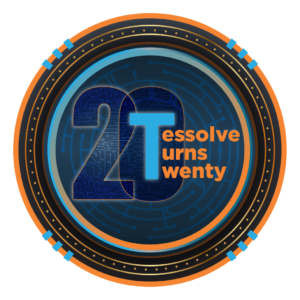Digital transformation has shown unexpected growth during the COVID-19 pandemic as organizations devised new approaches to ensure work continuity while reducing the impact of the worldwide pandemic. In this churn, businesses that have made significant investments in digital engineering have prepared themselves to face unexpected changes in global or business scenarios.
Now, businesses have understood the importance of the transformations and have started re-evaluating their business strategies as per the changing customer expectations, increasing competition, rising operational processes, and growing need to meet regulatory compliances.
Considering the above factors, Tessolve, a leading engineering testing services provider, has significantly made test engineering more seamless and fruitful to large enterprises, MSMEs, or startups.
Without any delay, explore the entire blog to understand key trends shaping test engineering solutions in 2023, their impact on business, and Tessolve’s solutions.
Digital Semiconductor Testing
Semiconductor testing is one of the most crucial components of electronic device manufacturing that verifies the specifications compliance, functional operations, and quality of chips. Semiconductor testing has become more significant due to the complexity and size of integrated circuits. Any minor defect may result in adverse reputation impact, expensive product recall, and sometimes even hazardous conditions. Various testing techniques such as functional, structural, parametric, and reliability testing are used in the semiconductor industry to ensure electronic devices integrate only high-quality and dependable ICs.
Tessolve’s digital semiconductor Test engineering services excel in verifying speed and pin count, encompassing High Performformace Computing (HPC), High-Speed FPGAs, MCMs, SoCs, RF & Bluetooth, DSPs, microprocessors/microcontrollers, PMIC, Mixed Signal, Analog and ASIC devices. Our expertise ensures robust functionality, performance, and reliability across various advanced digital components.
IoT Testing for Smart Devices and Systems
With the significant expansion in the Internet of Things, the software testing trend is bending towards IoT testing. The IoT is a network of interconnected physical products such as appliances, drones, cars, and other items with electronics, software, and connectivity that enable them to collect and exchange data. To ensure and check the efficiency and effectiveness of these devices, national and security testing has become crucial as the number of IoT devices is increasing daily. The objective is to confirm that the IoT system performs per user expectations.
Our R&D and Prototyping, Hardware Product Design, Development & Manufacturing, and IoT Software Development and Product Maintenance services make us an ideal product engineering solutions provider. We have in-house IoT bricks and custom development with top-notch engineering capabilities to assist product developers with end-to-end design. We provide connectivity modules for every scale business requirement, such as WiFi, BLE, Thread, Zigbee, and 6lowPAN for personal area networks and LTE-M, NBIoT, and 4G/3G for wide area network applications. However, if you want to know more about our IoT services, you can visit our IoT product page.
Augmented Reality (AR) vs. Virtual Reality (VR) Testing
AR and VR testing has emerged as a pivotal trend that addresses the unique challenges these immersive technologies pose in 2023. The need for rigorous testing has become increasingly evident as AR and VR applications increase across industries. AR & VR testing comprehensively evaluates the user experience within digital environments.
So, during this testing process, test engineers closely examine factors such as user interaction, spatial tracking accuracy, latency, and seamless integration between the virtual and real worlds to ensure the product must be glitch-free to the end users. This trend signifies the shifting of the testing trend from conventional testing methodologies to innovative approaches. Engineers are developing innovative ways to recreate real-world scenarios, stretching the boundaries of what can be tested and validated.
Adoption of DevOps and Agile Practices
In the past few decades, app development and deployment have become crucial for various business operations. The prominent benefit of the wide adoption of DevOps to the business is to incorporate agility. The shortened software development cycles result in an enhanced ability to incorporate changes. Market speed is one of the most crucial factors while developing a software product to avoid being outpaced by competitors. However, a quicker app development cycle ensures faster product deployment while also ensuring faster bug and error corrections.
The deployment of the DevOps process not only ensures high development speed but also ensures that the business operations follow optimal directions, contribute to the business’s success, and increase ROI.
Wrapping Up
The software testing space is continuously changing, and 2023 has already brought new software testing trends and technologies to assist organizations in gaining an edge over their competitors. However, the businesses that have incorporated these latest trends and invested in robust testing approaches are well-positioned to provide high-quality software and meet the expectations of their customers in this rapidly changing landscape.
Being an engineering testing services provider, Tessolve is well-equipped with various software testing solutions. Whether you are looking for Hi-end computing, Automotive, 5G & RF, IOT (WLAN & Bluetooth), or Silicon Photonics testing, we are one integrated platform for all your needs.
To Find a Solution, Contact us Today !!



